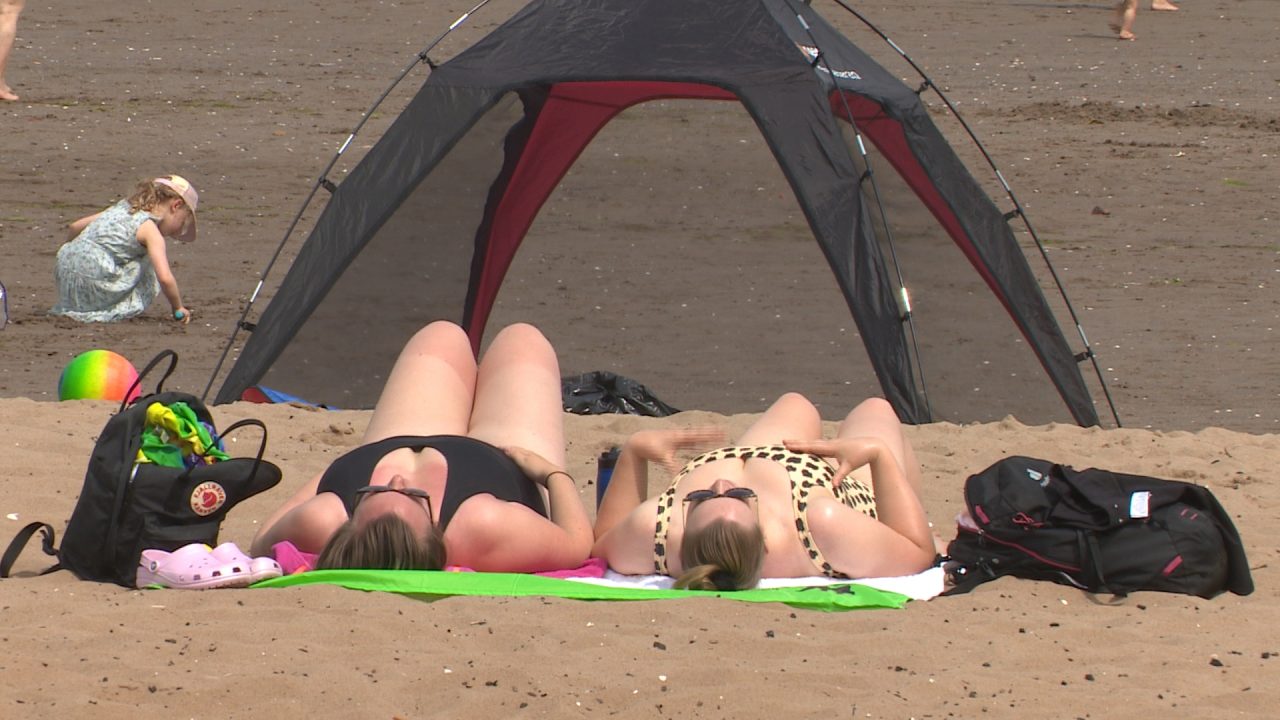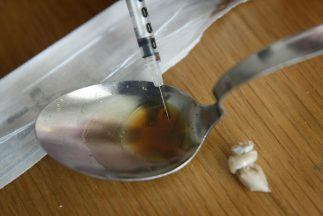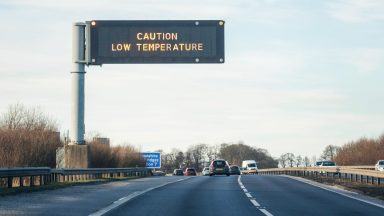This week, as homes burned and roads bubbled, the weighted threat of climate change has felt that much heavier.
It’s hard to ignore a looming future of complete climate breakdown when your own doorstep is quite literally on fire.
The stress that families have been under in the UK has been harrowing to hear of and difficult to watch.
For the first time on record, temperatures in the UK exceeded 40°C.
With that came wildfires, transport issues and people forced to leave their homes.
With it, the weather highlighted what we may or may not be ready to cope with as scientists warn of further extreme weather events in our future as global warming continues to loom over us.
Over the last week, we’ve heard from a number of people in Scotland about how the extreme heat impacts on their lives and the measures they’ve already taken to help those they care for cope as the mercury soars.
In our carehomes

Alison Payne is the home manager of Erskine Edinburgh Home. She said the heat is something they have had to prepare for.
“So, obviously this isn’t something that we’re used to in this country, so a lot of places, a lot of buildings aren’t really set up for high temperatures,” she said. “Luckily we’ve got some air conditioning in our houses so that helps.
“We make sure we encourage fluids, make sure our residents have sunscreen on, inside areas we close the windows where the sun shines in to try and keep the building cool.
“Mostly it’s having cold drinks available, our residents quite like ice cream and slushies.
“We do have a newer build as part of the building where we are able to cool and heat it properly with our changing climate in mind, it is something we have to take into consideration for all parts of our buildings.
“We already renew parasols and brollies each year to help create shaded areas in the garden too.”
Our firefighters

Firefighters are at the forefront of the climate emergency.
As the UK experiences record heat, firefighters and control staff have been stretched to the limit, responding to wildfires and other incidents as the country faces record temperatures.
At the peak of the heatwave, London services saw their busiest day since the Second World War.
For a service that would usually expect 500 calls on a busy day, they instead faced more than 2,600 calls.

Scottish Fire and Rescue Service group commander Lynne Gow is a wildfire tactical advisor.
“For most of the fire and rescue community we just look upon it as really quite horrific, these scenes, the devastation that families will be feeling and also just the feeling of vulnerability as this becomes real for people,” she said.
“It is a very traumatic sight for anyone, we’ve not seen seen anything like this come before us so it really is quite striking for our community.
“Our incident data is showing us that this is slowly emerging into a greater problem for the summer months. Historically we’ve seen large outdoor fires in the spring time after the fields have dried out over winter…but we’re not starting to see these conditions into summer too – and that’s causing us to think that this is here to stay.
“In a prolonged period of high temperatures I think people do need to realise that the risk of wildfires increases and human behaviour has a massive role to play in how we tackle this as a community.
“That means not lighting any outdoor fires or barbecues when we have high temperatures and trying to keep the risks down.”
On the farm

Simon Mccreery is the owner of Yester Farm Dairies in Haddington. He said that the extreme heat has a significant impact on our farms.
“On the farm we’ve got nearly 400 dairy cows and believe it or not, 16C is perfect for dairy cows – above 20C and cows start to struggle with heat stress,” he said.
“Extreme temperatures affect them and that means us giving them as much access to water as we can, when they come in for milking we’ve even put in a sprinkling system so they get a cooling spray of water when they come in to help cool them down.
“You manage it the best you can. We do have more extreme weather. I think in the UK as a whole we’ve had the seven hottest days out of ten in the last 20 years, so that proves climate change. In 2018 we had extreme drought here, so crops didn’t grow, the grass didn’t grow, you have to buy extra feed in and simply manage it the best you can.
“It’s becoming more and more of an issue and we just have to learn to deal with it.”
What the science says

The inescapable truth is that heatwaves are happening more often and becoming hotter.
According to climate scientists, quick adaptation is key to reducing the impact.
Dr Kate Donovan is a lecturer in climate risk and resilience and co-director of the Edinburgh Climate Change Institute.
“So all of the science is pointing towards more severe, more frequent heat temperatures that we’ve been seeing and what we can go on to expect if we continue to pump greenhouse gases into the atmosphere is that by 2050, what we’ve seen this week in Scotland will become the normal average daily temperature in summer.
“So, it is going to get worse and we need to adapt to make sure that those that are more vulnerable to heat are protected and have the tools they need to survive.
“Scotland really needs to look carefully at the transport network and then also really look at health and wellbeing, so looking at the most vulnerable members of our population, so the elderly, those in care homes and hospitals.
“Tragically it seems about 90% of the UK hospitals, the wards are at risk of overheating due to these kinds of events.”

Provisional research undertaken at the institute has also looked at heatwaves in Scotland and at what point we start to see people dying because of extreme heat.
“What the research is finding is that it is a lot lower in Scotland compared to elsewhere in the UK,” said Dr Donovan.
“So for example, from about 15C onwards, as an average daily temperature, we start to see people suffering due to heat in Scotland. In London, it’s about 20C to 25C. This is partly because we’re not used to the heat but also because our buildings and our infrastructure aren’t designed to cope with the heat.
“And so actually even though we might think we’re a much cooler nation, we need to be thinking about heat because we’re going to suffer the first and the worst when temperatures start to increase.”
But it’s not all doom

While we are already suffering the impacts of the climate crisis, from extreme heatwaves to increased flooding and storms, there is still time to bring our planet back from the edge.
By curbing global warming, by cutting our carbon emissions, we can see a more positive outcome for life on Earth.
The damage already done means severe weather events will still occur in our near future with greater ferocity and frequency.
But with some careful changes we can help mitigate against the rising temperatures.
We can add more green spaces in cities for example, which can help lower air temperatures. Green or cool roofs can also make a difference.
Urban cooling centres can be installed and roads modified to help cope with intense temperatures as well as train tracks and other infrastructure by using more resilient materials.
Ultimately though, a reduction in future emissions, globally, and meeting our internationally set climate change targets, will be what really help to reduce the scale of heatwaves we will experience and provide a safer home for future generations.
Follow STV News on WhatsApp
Scan the QR code on your mobile device for all the latest news from around the country


 STV News
STV News
























